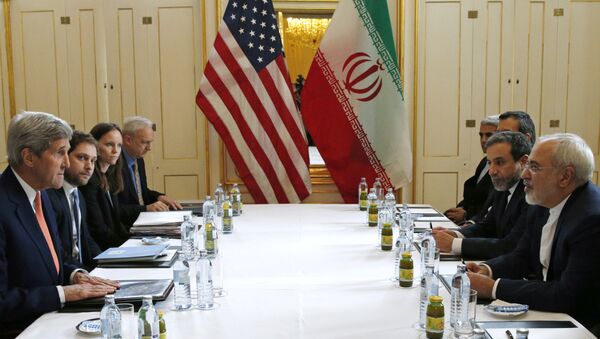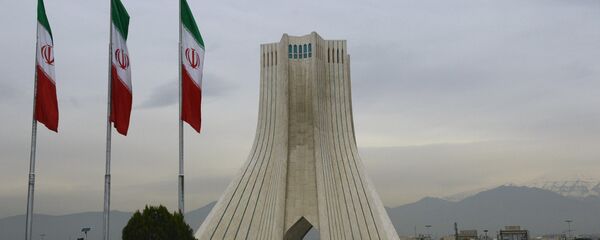On Saturday, 29 people, including children, were killed in a deadly terrorist attack on Iran's Revolutionary guard parade in Ahvaz. Although President Rouhani did not directly blame the US for the attack, he hinted that there was American support of rebel factions in the country which pose a continuous threat.
This comes as former mayor of New York and close ally of Donald Trump Rudy Giuliani spoke of toppling the Iranian government at a rally of Iranian dissidents on Saturday.
Sputnik contacted Roozbeh Aliabadi, a geopolitical commentator, to discuss the issue.
Sputnik: Do you agree with President Rouhani's accusation that it is US-backed factions could be responsible for Saturday's terror attack in Ahvaz?
Sputnik: Is the US' goal — as former New York mayor Rudy Giuliani said at the EMK conference on Saturday — to ‘overthrow' the Iranian ‘regime'?
Roozbeh Aliabadi: If we look at Mr Giuliani's statements as a barometer of what the Trump administration wants I think we are being a bit naïve about [the] Trump administration's policy towards the region. The fact of the matter is this administration does not have a grand national security strategy towards Iran. And what we've seen with President Trump he was more interested in getting out of the nuclear deal, not because it was [the] Iran Nuclear Deal, but because it was President Obama's legacy — so it was more of a partisan decision. Now, looking at the broader national security apparatus of the US government it is very divided. There are ideologues, if you will, who are thinking that the Iran regime should be overthrown, but those ideologues do not have much political space right now in the administration. Could this happen? It is possible; however right now the national security establishment in the United States is very much in opposition [to] President Trump's decisions to leaving the JCPOA because they believe the broader ramifications of not being in the JCPOA would bring, if you will, less stability to US national interests and US, frankly, interests in the broader Middle East.



